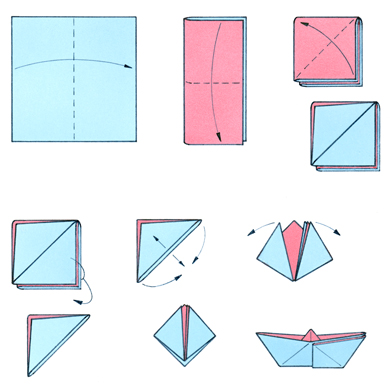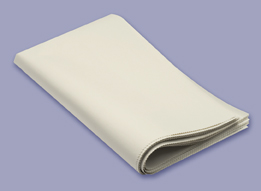Lesson 1
1. Lesson 1
1.4. Discover
Module 7: Exponents and Logarithms
Discover

Dorling Kindersley RF/Thinkstock
Origami is a traditional Japanese art form that is created by folding paper into various shapes. An example of origami is shown in the diagram, which includes the steps required to create a boat.
In Try This 1 you will fold paper and look at the number of layers of paper that you have after each fold.
Try This 1
Use a piece of paper to determine the number of layers after each fold. Complete a chart like the following.
Number of Folds |
Number of Layers Created | Number of Layers Created as a Power of 2 |
| 0 | 1 | 20 |
| 1 | 2 | 21 |
| 2 | 4 | 22 |
| 3 | 8 | 23 |
| 4 | ||
| 5 |
- Fill in the rest of the chart. Sketch a graph of the number of layers created as a function of the number of folds. Describe the shape of the graph.
- How could you determine the number of layers created for any number of folds?
- How many layers would be created after eight folds?
![]() Save your responses in your course folder.
Save your responses in your course folder.
Share 1
With a partner or group, discuss the following questions.
- Mathematically, what would happen to the number of layers if you kept folding forever? In real life, would it be possible to continue physically folding the paper forever?
- What type of relationship exists between the number of folds of paper and the number of layers of paper created?
![]() If required, place a summary of your discussion in your course folder.
If required, place a summary of your discussion in your course folder.

iStockphoto/Thinkstock
The common belief is that a single sheet of paper cannot be folded more than seven times. This is because the number of layers doubles with each fold but the size of the paper is reduced by half with each fold. However, claims have been made that it is possible to fold paper more than seven times. An American student, Britney Gallivan, is said to hold the record for folding paper at 12 times.